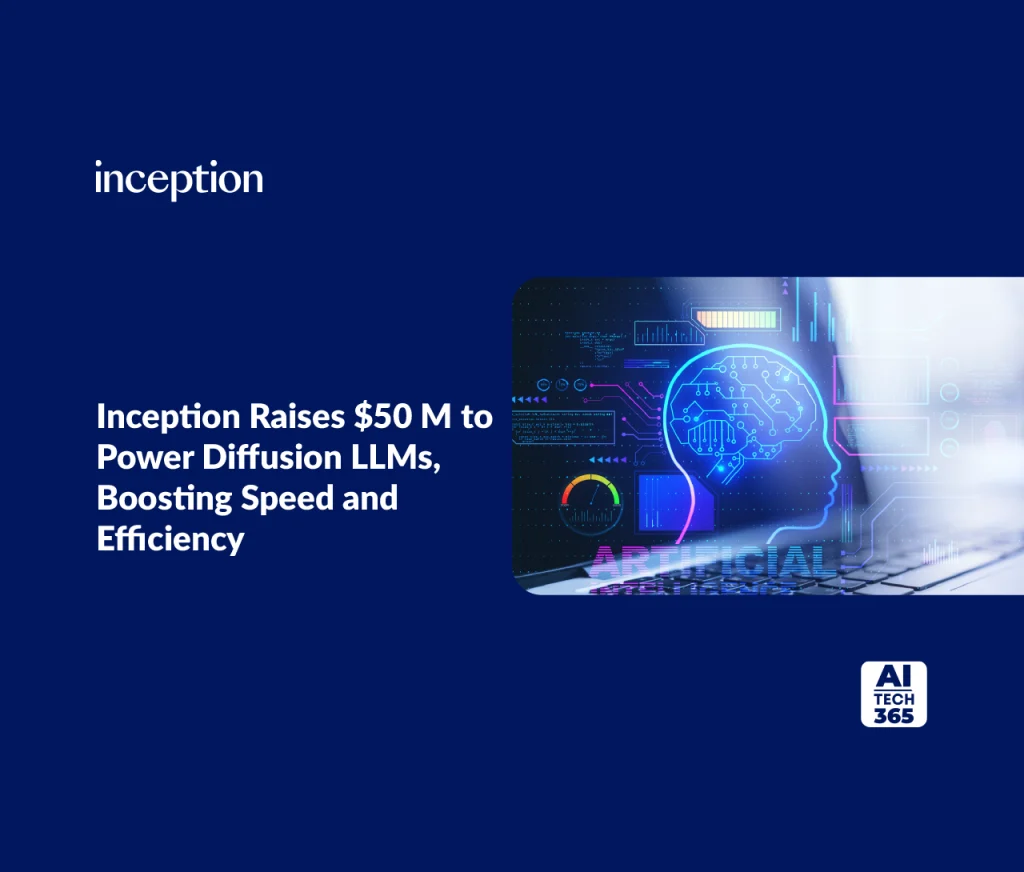Inception, the company redefining large-language-model (LLM) architecture through diffusion-based technologies, announced the successful close of a $50 million funding round. The financing was led by Menlo Ventures, with participation from Mayfield, Innovation Endeavors, NVentures (the venture arm of NVIDIA), M12 (Microsoft’s investment fund), Snowflake Ventures, and Databricks Investment.
Today’s generative-AI models, built on autoregressive techniques generating one token at a time create a structural bottleneck that slows deployment and escalates cost.
Inception takes a different path: its diffusion large-language models (dLLMs) are engineered to generate answers in parallel, applying the same foundational breakthroughs that powered image- and video-generation platforms such as DALL·E, Midjourney and Sora. This approach enables text-generation that is up to 10× faster and more efficient than traditional LLMs, while maintaining equivalent accuracy.
Its first commercially available model, Mercury, is reported to deliver 5-to-10× speed improvements compared with speed-optimized offerings from OpenAI, Anthropic and Google LLC while matching their quality. These gains make the model particularly effective for latency-sensitive scenarios such as live voice agents, on-the-fly code generation and dynamic user interfaces.
In addition, the lower GPU footprint enables organizations to run larger-scale models with the same latency and cost, or serve more users using existing infrastructure.
Also Read: Google Cloud Enhances Vertex AI Training with Advanced Large-Scale Capabilities
“The team at Inception has demonstrated that dLLMs aren’t just a research breakthrough; it’s a foundation for building scalable, high-performance language models that enterprises can deploy today,” said Tim Tully, Partner at Menlo Ventures.
“Training and deploying large-scale AI models is becoming faster than ever, but as adoption scales, inefficient inference is becoming the primary barrier and cost driver to deployment,” said Inception CEO and co-founder Stefano Ermon. “We believe diffusion is the path forward for making frontier model performance practical at scale.”
The newly raised funds will support accelerated product development, expansion of research and engineering teams, and deepened work on diffusion systems across text, voice and coding applications.
Beyond speed and efficiency, Inception’s roadmap includes additional breakthroughs:
Built-in error correction to reduce hallucinations and boost response reliability.
Unified multi-modal processing to enable seamless interaction across language, image and code.
Precise output structuring for function-calling and structured-data generation use cases.
The company was founded by professors from Stanford University, UCLA and Cornell University, who contributed to core AI innovations including diffusion, flash attention, decision transformers and direct-preference optimization. CEO Stefano Ermon is cited as a co-inventor of the diffusion methods underlying platforms such as Midjourney and Sora. The engineering leadership brings experience from DeepMind, Microsoft, Meta, OpenAI and HashiCorp.
Inception’s models are accessible through the Inception API, Amazon Bedrock, OpenRouter and Poe and act as drop-in replacements for traditional autoregressive models. Early adopters are already exploring use cases in real-time voice, natural-language web interfaces and code-generation workflows.

